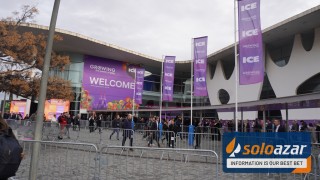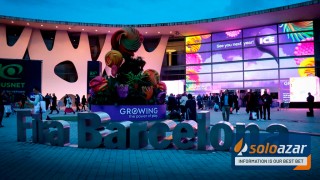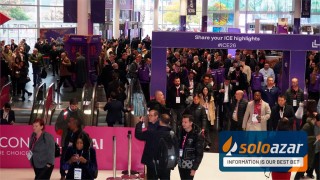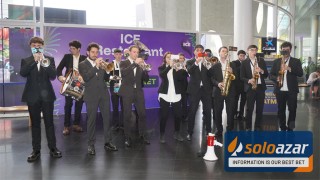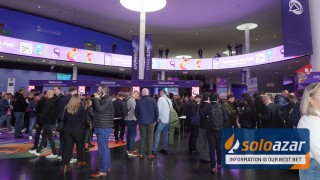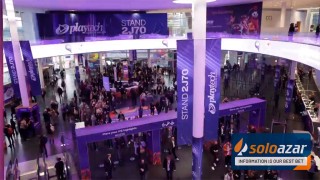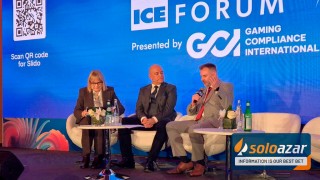Wynn Resorts Casinos rolled the dice on the UAE
Monday 11 de November 2024 / 12:00
2 minutos de lectura
(Las Vegas). -With its first casino resort set to open in 2027, a little-known emirate is suddenly an unlikely hot gaming market. Here’s how the U.S. casino giant made a high-stakes bet on its future—and left Abu Dhabi, Dubai and other casino operators in the dust.
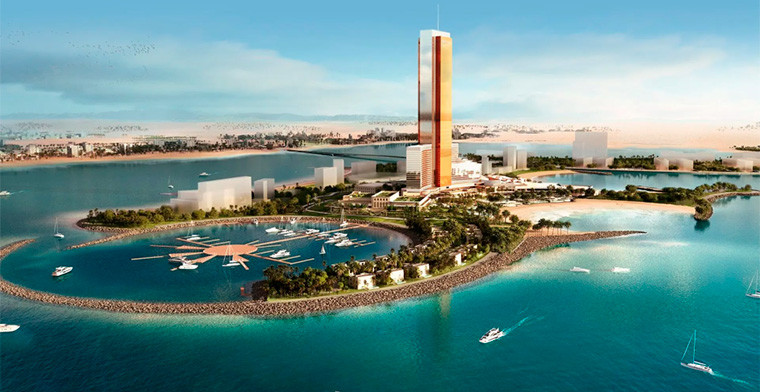
Wynn Resorts CEO Craig Billings raised eyebrows a year ago when he told investors that the United Arab Emirates was the “the most exciting new market opening in decades.” Outside of Egypt and Lebanon, casinos are practically nonexistent in the Middle East, since majority Muslim countries typically ban gambling. Even more intriguing: At the time Billings was enthusing about the UAE’s gaming future, the kingdom had exactly zero casinos. It didn’t even have a gaming authority.
In 2022, the company announced an ambitious new project—a $3.9 billion luxury “integrated resort” set on a man-made barrier islet in the emirate of Ras Al Khaimah, also known as RAK. The plans called for a glittering hotel tower with 1,500 high-end rooms and suites, as well as private villas on the marina adjacent to the resort. There would be 24 restaurants and lounges, a spa, a beach club, a 9-acre poolscape, a high-end shopping esplanade, multiple entertainment venues, and nightly state-of-the-art laser and light shows. From the outset, the designs included a gaming floor—though, at the time, Wynn did not yet have a casino license.
Billings’ bet paid off last month, when the UAE’s General Commercial Gaming Regulatory Authority (GCGRA) awarded Wynn the first commercial gaming operator’s license in the emirates. Notably, the casino is just the beginning of gambling in the UAE. The fledgling gaming authority also recently greenlit its first national lottery, and it is also preparing to launch a regulated iGaming market, which encompasses sports betting and any wager on a future outcome.
Wynn’s early gamble on the UAE now seems like a winner. But it was actually a huge risk, considering that the GCGRA was only formed after Wynn had already committed to build. “Wynn has been telling us the whole time they felt strongly confident that they were going to get this license, but then it did take them a while,” says Chad Beynon, a senior analyst covering gaming, lodging and theaters for Macquarie Capital. “Meanwhile, they were building this property. If they never got that license, that would have been massively detrimental to shareholders.”
The Wynn Al Marjan, slated to open in 2027, is a joint venture between Wynn and RAK Hospitality Holding, chaired by the emirate’s 37-year-old crown prince, Sheikh Mohammed bin Saud bin Saqr Al Qasimi. Wynn Resorts owns 40% of the Al Marjan project. According to SEC filings, the company invested $455 million during the first nine months of 2024, bringing its life-to-date spend to $533 million. Wynn’s remaining 40% pro-rata share of the required equity is $800 to $875 million, the company’s CFO Julie Cameron-Doe told investors on Monday’s third-quarter earnings call. That would bring Wynn’s total projected investment in the project to about $1.4 billion.
It’s significant that Wynn didn’t partner with one of the UAE’s two economic powerhouses, Abu Dhabi or Dubai, but with much lesser-known Ras Al Khaimah. The northernmost of the seven emirates, RAK has an $11.5 billion GDP—just 2% of the value of all goods and services produced in the UAE. Slightly larger than South Carolina, RAK borders Oman to the north and east, and the emirate of Umm Al Quwain to the south. Its name translates roughly to “the head of the tent,” where archaeologists have found signs of civilization dating back 7,000 years. In modern days, the emirate’s chief economic driver is RAK Ceramics, a company that produces 123 million square meters of tiles and 5 million units of what is euphemistically known as “sanitaryware”—sinks, bathtubs, toilets—resulting in $545 million in revenue per year. That figure is expected to be eclipsed by Wynn Al Marjan once it launches.
“Based off what Wynn has communicated with us,” says Beynon, “their emirate is very business-friendly.” He speculates that it’s much easier for Wynn to work with RAK simply because there are fewer local stakeholders to potentially challenge the project. For perspective, Beynon brings up an example closer to home. “Miami wanted to get a casino license for the past 20 years,” he says. “And Disney would oppose it. Convention centers in Miami would oppose it. Restaurants and hotels would oppose it. I believe that’s the risk in Dubai and Abu Dhabi. They’re already established with tens of billions of dollars of investment from others.”
When the resort opens three years from now, Wynn Al Marjan will be an acid test for whether casinos succeed in the UAE. “The way I think about it is like this,” Billings told investors on a third-quarter earnings call last week. “There is not a proper integrated resort, really, on that half of the planet, okay? So the closest is going to be in Asia—Singapore or Macau.” He then noted the massive population within an eight-hour flight of the UAE. “You have 86 million airlifts coming into the Dubai Airport, and we’re about 55 minutes via one of three six-lane highways from the Dubai airport.”
Wynn Resorts around the world
“And then, you have 10 million people locally, nine million of whom are not Emirati and, therefore, are able to play,” Billings continued. In fact, expatriates make up roughly 88% of the UAE’s population, placing the kingdom second only to the Vatican in the proportion of expats to nationals. About 70% the country’s foreign population hails from South Asia (especially India, Bangladesh and Pakistan) or Egypt.
“We are confident the resort will be a ‘must-see’ tourism destination in the UAE and expect that it will support strong long-term free cash flow growth,” Billings told investors last week, adding that construction on the hotel has now reached the 24th floor, making the Wynn Al Marjan already the tallest building in RAK. (When completed, the 1,000-foot hotel tower will be the 19th tallest in the UAE, and roughly a third as tall as Dubai’s Burj Khalifa, the world’s tallest tower.)
Billings has said he believes the UAE will be a $3 billion to $5 billion gaming market, and that Wynn should have a two- to three-year jump before other casino-operator rivals enter the region. Beynon reckons that’s a conservative guess. “At this point they might have a five-year head start,” he says, noting that MGM Resorts CEO Bill Hornbuckle has recently applied for a UAE casino license in Abu Dhabi.
“The way it will work, the federal government, the Abu Dhabi government, will approve it,” Hornbuckle told a crowd at the Skift Global Forum in September. “We’ve applied for something there and hopefully will win something there. Then each ruler will have their say. It’s like a state, where each state says yes or no.”
Some have likened what’s happening in the UAE to building a Las Vegas in the Middle East.
But Beynon sees a better analogy in Japan, which is on track to welcome its first casino by 2030. Just as the UAE is opening to gaming, Japan is also ending its long-standing ban on gambling. And like in the emirates, if U.S. casino operators want to enter the Japanese market, they must first team up with local partners. Osaka Integrated Resort, or Osaka IR, is a $233 million casino-hotel to be built on Yumeshima, an artificial island in Osaka Bay.
The project is a joint venture between MGM Resorts and Orix, a Japanese financial services group, with each party owning a 40% stake. The remaining 20% is spread between 22 other firms, including Panasonic Holdings and West Japan Railway.
Similar to how U.S. casinos in the UAE are required to partner with the leader of their emirate, Japan’s regional rivalries also serve to limit competition. “Each [casino company] doing business in a city or region is essentially competing against everyone else within that city or region,” Beynon explains. “And then you have your local winners.” Indeed. According to forecasts, Osaka IR expects to bring in $3.6 billion in annual revenue, with around 80% of that coming from casino operations.
By Suzanne Rowan Kelleher
Categoría:Casino
Tags: Sin tags
País: United States
Región: North America
Event
ICE Barcelona 2026
19 de January 2026
Toni Karapetrov from Habanero on ICE Barcelona 2026: Regulated Growth, Localization and Strategic Expansion Drive 2026 iGaming Strategy
(Barcelona, Exclusive SoloAzar).- In this interview, Toni Karapetrov, Head of Corporate Communications at Habanero, shares insights from ICE Barcelona 2026, highlighting premium content innovation, high-level industry engagement, key iGaming trends such as localization and gamification, and the company’s strategic focus on regulated market expansion and sustainable growth in 2026.
Friday 13 Feb 2026 / 12:00
Johnny Ortiz, Founder of Zitro: "Our participation in this second edition of ICE Barcelona has been a resounding success"
(Barcelona, SoloAzar Exclusive).- In this interview, Johnny Ortiz reviews Zitro's participation at ICE Barcelona 2026, analyzes the impact of its new FANTASY and ILLUSION products, and reveals the company's strategic priorities for 2026, including international expansion, technological innovation, and strengthening its position in the Spanish market.
Friday 13 Feb 2026 / 12:00
R. Franco Strengthens Its Global Positioning Following a Strong Presence at ICE Barcelona 2026
(Barcelona, SoloAzar Exclusive).- R. Franco Digital's participation at ICE Barcelona 2026 delivered a highly positive outcome for the company, which leveraged the event to consolidate its international presence, showcase its latest innovations for both land-based and online segments, and generate key business opportunities across Europe and Latin America.
Wednesday 11 Feb 2026 / 12:00
SUSCRIBIRSE
Para suscribirse a nuestro newsletter, complete sus datos
Reciba todo el contenido más reciente en su correo electrónico varias veces al mes.











